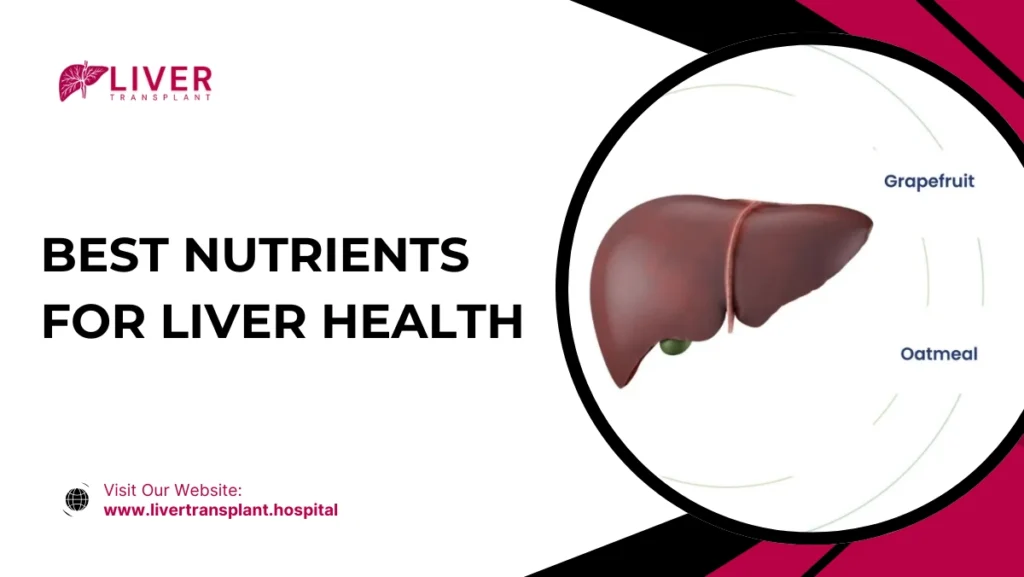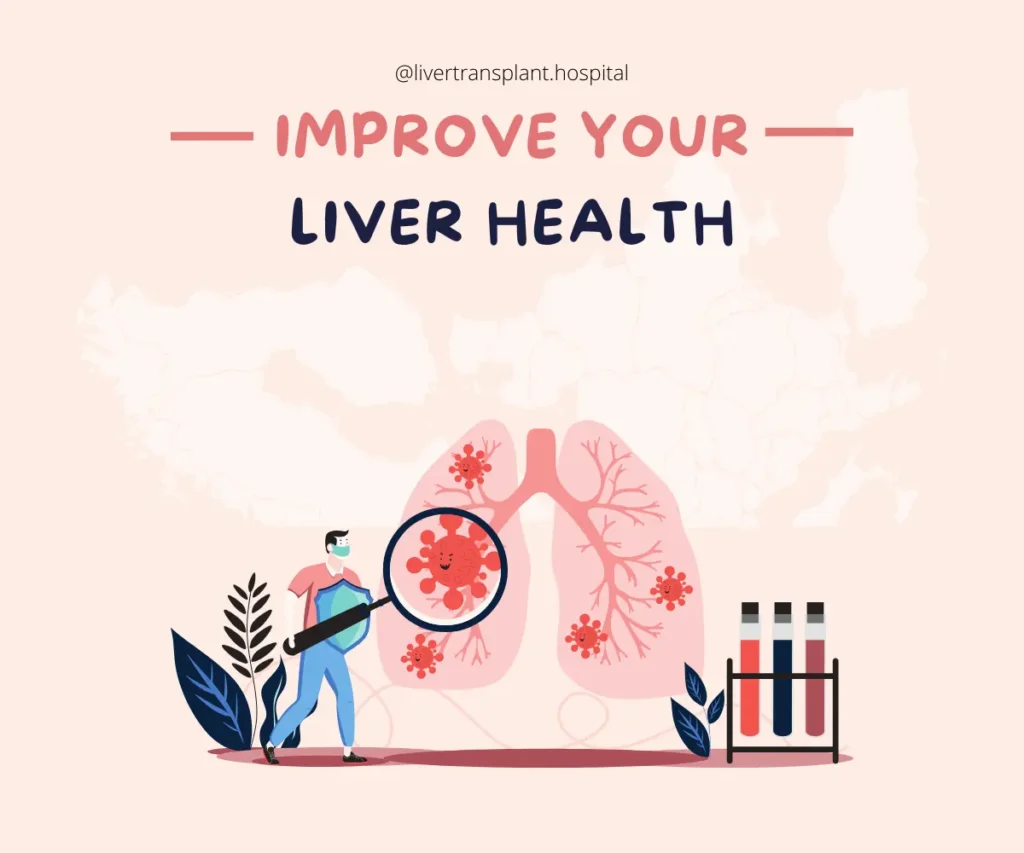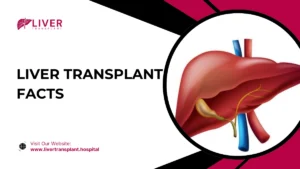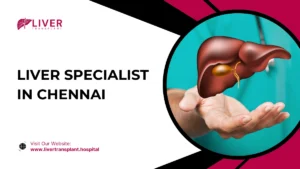Your liver is a vital organ that plays a key role in detoxifying your body and supporting digestion. To keep it functioning at its best, it’s important to nourish it with the best nutrients for liver health. By incorporating liver-friendly foods into your diet, you can enhance your liver’s ability to perform its essential functions.
Keep Your Liver Happy
Your liver is one of the hardest working organs in your body, performing over 500 essential functions, from filtering toxins to breaking down fats. Maintaining liver health should be a priority, and the best way to do so is through your diet. Consuming the right nutrients and avoiding harmful substances can make all the difference in keeping your liver strong and healthy.
To ensure your liver stays in top shape, you must focus on liver-friendly foods that naturally support its function. These foods provide essential vitamins, antioxidants, and nutrients that cleanse and protect your liver. Along with including these foods in your diet, certain habits should be minimized to reduce liver stress.
Here’s how you can keep your liver happy:
- Eat a nutrient-rich diet: Leafy greens, whole grains, and fatty fish are all excellent for liver health.
- Hydrate well: Drinking plenty of water helps the liver flush out toxins.
- Limit alcohol: Alcohol puts excessive strain on the liver and can lead to damage.
Exercise regularly: Staying active helps maintain a healthy weight, reducing the risk of liver disease.
Leafy Greens
Leafy greens like spinach, kale, arugula, and collard greens are packed with essential nutrients that help support liver health. These nutrient-dense vegetables are rich in antioxidants, vitamins, and fiber, all of which are crucial for cleansing and protecting your liver. Consuming leafy greens regularly is one of the best ways to ensure your liver stays healthy and functioning at its best.
Here’s why leafy greens are excellent for liver health:
- Rich in Chlorophyll: Chlorophyll, found in green vegetables, helps neutralize toxins and harmful chemicals in the liver.
- High in Antioxidants: Leafy greens are loaded with antioxidants that reduce inflammation and oxidative stress, both of which can damage liver cells.
- Boosts Bile Production: These vegetables stimulate bile production, aiding in digestion and the removal of waste and toxins from the body.
How to Include Leafy Greens in Your Diet:
- Add spinach or kale to smoothies for a nutritious start to your day.
- Toss a fresh salad with arugula, mixed greens, and a light dressing.
- Sauté collard greens or spinach with garlic for a simple, healthy side dish.
Incorporating these liver-friendly foods into your daily meals can help protect and detoxify your liver, ensuring long-term liver health.
Omega-3 Fatty Acids
Omega-3 fatty acids are essential fats that play a significant role in improving liver health. Found in foods like fatty fish, flaxseeds, and walnuts, Omega-3s are known for their anti-inflammatory properties and their ability to reduce fat buildup in the liver. Including Omega-3 fatty acids in your diet can help prevent liver-related diseases such as non-alcoholic fatty liver disease (NAFLD) and improve overall liver function.
- Reduces liver fat: Omega-3s help lower triglyceride levels, reducing the amount of fat stored in the liver.
- Fights inflammation: These healthy fats have anti-inflammatory properties, which can reduce liver inflammation and the risk of liver damage.
- Supports detoxification: Omega-3s help the liver process toxins more efficiently, improving your overall liver health.
Include Omega-3-rich foods in your daily diet:
- Eating fatty fish like salmon, mackerel, and sardines twice a week.
- Adding flaxseeds or chia seeds to your smoothies, salads, or yogurt.
- Using fish oil supplements if you’re not getting enough Omega-3s from food.
Incorporating Omega-3 fatty acids into your diet is one of the most effective ways to support long-term liver health and prevent liver-related issues.
Oatmeal
Oatmeal is a highly beneficial food for maintaining liver health. It’s packed with dietary fiber, which plays a crucial role in promoting good digestion and preventing fat buildup in the liver. A diet rich in fiber, like oatmeal, helps reduce the risk of liver conditions such as fatty liver disease, making it one of the best liver-friendly foods.
The soluble fiber in oatmeal works wonders by binding to toxins and cholesterol, helping to flush them out of your system. This process lightens the liver’s workload, allowing it to function more efficiently. Including oatmeal in your daily diet can be a simple yet effective way to support liver health.
Here’s why oatmeal stands out:
- Rich in Fiber: Helps maintain a healthy digestive system and reduces fat buildup in the liver.
- Supports Weight Management: Eating oatmeal regularly can help control weight, reducing liver fat.
- Promotes Satiety: Keeps you feeling full longer, helping to avoid overeating, which can stress the liver.
To get the most out of oatmeal’s benefits for liver health, start your day with a warm bowl or incorporate it into smoothies, snacks, and even baked goods. It’s an easy addition to any meal plan focused on liver-friendly foods.
Green Tea
Green tea is renowned for its numerous health benefits and is a popular choice for those seeking a healthier lifestyle. Packed with antioxidants and essential nutrients, it offers a range of advantages that can enhance overall well-being. Here’s why incorporating green tea into your daily routine can be beneficial:
- Rich in Antioxidants: Green tea contains powerful antioxidants such as catechins, which help to neutralize harmful free radicals in the body. This can reduce oxidative stress and lower the risk of chronic diseases.
- Supports Metabolism: Regular consumption of green tea can boost metabolism, which aids in weight management. It enhances fat oxidation and increases calorie expenditure, making it a helpful addition to a balanced diet.
- Promotes Heart Health: Green tea has been shown to improve cardiovascular health by reducing LDL cholesterol levels and improving blood vessel function. This helps lower the risk of heart disease and stroke.
- Enhances Brain Function: The caffeine and L-theanine in green tea work synergistically to improve cognitive function, including memory, attention, and mood.
- Boosts Immune System: The polyphenols in green tea can enhance immune response, helping the body to fight off infections and diseases more effectively.
Incorporating green tea into your daily routine can offer these health benefits and contribute to a healthier lifestyle.
Grapefruit
Grapefruit is a citrus fruit known for its tangy flavor and numerous health benefits. As a rich source of essential vitamins and minerals, it plays a significant role in promoting overall wellness and supporting specific aspects of health.
Nutritional Benefits
- Vitamin C: Grapefruit is an excellent source of Vitamin C, a crucial antioxidant that helps strengthen the immune system and protects cells from damage.
- Fiber: The fruit contains dietary fiber, which aids in digestion and helps maintain a healthy gut.
- Antioxidants: Grapefruit is packed with antioxidants like flavonoids and lycopene, which contribute to reducing inflammation and supporting heart health.
Health Benefits
- Weight Management: Grapefruit is low in calories and high in water content, making it a beneficial addition to a weight management plan.
- Blood Sugar Regulation: Regular consumption of grapefruit may help in stabilizing blood sugar levels, which is particularly advantageous for individuals with diabetes or insulin resistance.
- Skin Health: The Vitamin C content in grapefruit supports collagen production, contributing to healthy and youthful-looking skin.
Including grapefruit in your diet can enhance your health due to its nutrient-dense profile and numerous beneficial properties.
Coffee and The Liver
Coffee is often lauded for its potential health benefits, including its positive impact on liver health. Recent studies suggest that regular coffee consumption may offer protective effects against various liver conditions. Here’s how coffee interacts with the liver:
- Antioxidant Properties: Coffee is rich in antioxidants, such as chlorogenic acids, which help combat oxidative stress and inflammation in the liver. This can reduce the risk of liver diseases like fatty liver and cirrhosis.
- Reduction in Liver Enzymes: Consuming coffee has been linked to lower levels of liver enzymes, indicating reduced liver damage. Lower enzyme levels can be a marker of better liver function and less inflammation.
- Prevention of Liver Diseases: Regular coffee consumption may help prevent the progression of chronic liver diseases, including hepatitis and liver fibrosis. It has been associated with a lower incidence of liver cirrhosis and liver cancer.
- Improved Liver Function: Coffee drinking has been shown to improve overall liver function by enhancing the liver’s ability to metabolize fats and sugars. This can contribute to a lower risk of developing liver-related complications.
Incorporating coffee into your diet could be a simple yet effective way to support liver health and potentially prevent liver-related conditions. However, it’s important to consume coffee in moderation and consult with a healthcare provider, especially if you have existing liver conditions.
Things to Avoid for Better Liver Health
Maintaining optimal liver health is crucial for overall well-being. To ensure your liver remains in top condition, it’s important to avoid certain behaviors and substances that can negatively impact its function. Here’s a guide to help you steer clear of potential liver hazards:
- Excessive Alcohol Consumption: Alcohol is a major liver toxin. Drinking excessively can lead to fatty liver, alcoholic hepatitis, and eventually cirrhosis. It’s advisable to limit alcohol intake to moderate levels or abstain altogether.
- High-Fat Diets: Diets rich in saturated fats and trans fats can contribute to liver inflammation and fatty liver disease. Opt for a balanced diet with healthy fats, such as those found in avocados, nuts, and olive oil.
- Uncontrolled Diabetes: High blood sugar levels can lead to liver damage. Proper management of diabetes through diet, exercise, and medication is essential to prevent complications like non-alcoholic fatty liver disease (NAFLD).
- Overuse of Medications: Many over-the-counter and prescription medications can strain the liver if used improperly. Always follow dosage recommendations and consult with a healthcare provider before starting any new medications.
- Exposure to Toxins: Avoid exposure to harmful chemicals, including those in household cleaners and pesticides, as they can be detrimental to liver health. Use protective gear when handling such substances.
- Smoking: Tobacco use can exacerbate liver disease and interfere with its healing processes. Quitting smoking can significantly benefit liver health and overall wellness.
Best Supplements for Liver Health
When it comes to liver health, supplements can provide the necessary nutrients to support detoxification, reduce inflammation, and repair liver cells. Here are some of the best liver support supplements:
- Milk Thistle: Protects liver cells, promotes regeneration, and detoxifies harmful substances, with strong antioxidant and anti-inflammatory properties.
- Turmeric: Curcumin in turmeric reduces liver inflammation, supports tissue repair, and enhances overall liver health through antioxidant benefits.
- Artichoke Leaf: Boosts bile production, aids fat digestion, and supports liver detoxification, making it a strong liver health supplement.
- N-Acetyl Cysteine (NAC): Precursor to glutathione, it detoxifies chemicals and reduces liver damage caused by oxidative stress effectively.
- Dandelion Root: Stimulates bile flow, aids digestion, detoxifies the liver, and reduces liver congestion for improved overall liver function.
- Alpha Lipoic Acid (ALA): Powerful antioxidant that protects against liver damage, enhances detoxification, and promotes healthy liver function naturally.
Conclusion
The liver is a powerhouse that supports many vital functions in your body, and taking care of it is essential for long-term health. Incorporating the best liver support supplements, such as Milk Thistle, Turmeric, and N-Acetyl Cysteine, along with a balanced diet, can greatly improve liver health. Remember that maintaining an overall healthy lifestyle is key to optimizing liver function and longevity.






